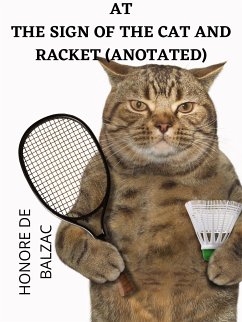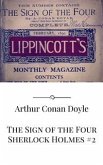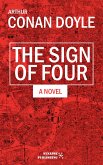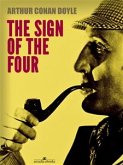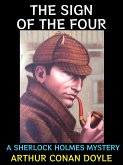Half-way down the Rue Saint-Denis, almost at the corner of the Rue du Petit-Lion, there stood formerly one of those delightful houses which enable historians to reconstruct old Paris by analogy. The threatening walls of this tumbledown abode seemed to have been decorated with hieroglyphics. For what other name could the passer-by give to the Xs and Vs which the horizontal or diagonal timbers traced on the front, outlined by little parallel cracks in the plaster? It was evident that every beam quivered in its mortices at the passing of the lightest vehicle. This venerable structure was crowned by a triangular roof of which no example will, ere long, be seen in Paris. This covering, warped by the extremes of the Paris climate, projected three feet over the roadway, as much to protect the threshold from the rainfall as to shelter the wall of a loft and its sill-less dormer-window. This upper story was built of planks, overlapping each other like slates, in order, no doubt, not to overweight the frail house.
One rainy morning in the month of March, a young man, carefully wrapped in his cloak, stood under the awning of a shop opposite this old house, which he was studying with the enthusiasm of an antiquary. In point of fact, this relic of the civic life of the sixteenth century offered more than one problem to the consideration of an observer. Each story presented some singularity; on the first floor four tall, narrow windows, close together, were filled as to the lower panes with boards, so as to produce the doubtful light by which a clever salesman can ascribe to his goods the color his customers inquire for. The young man seemed very scornful of this part of the house; his eyes had not yet rested on it. The windows of the second floor, where the Venetian blinds were drawn up, revealing little dingy muslin curtains behind the large Bohemian glass panes, did not interest him either. His attention was attracted to the third floor, to the modest sash-frames of wood, so clumsily wrought that they might have found a place in the Museum of Arts and Crafts to illustrate the early efforts of French carpentry. These windows were glazed with small squares of glass so green that, but for his good eyes, the young man could not have seen the blue-checked cotton curtains which screened the mysteries of the room from profane eyes. Now and then the watcher, weary of his fruitless contemplation, or of the silence in which the house was buried, like the whole neighborhood, dropped his eyes towards the lower regions. An involuntary smile parted his lips each time he looked at the shop, where, in fact, there were some laughable details.
One rainy morning in the month of March, a young man, carefully wrapped in his cloak, stood under the awning of a shop opposite this old house, which he was studying with the enthusiasm of an antiquary. In point of fact, this relic of the civic life of the sixteenth century offered more than one problem to the consideration of an observer. Each story presented some singularity; on the first floor four tall, narrow windows, close together, were filled as to the lower panes with boards, so as to produce the doubtful light by which a clever salesman can ascribe to his goods the color his customers inquire for. The young man seemed very scornful of this part of the house; his eyes had not yet rested on it. The windows of the second floor, where the Venetian blinds were drawn up, revealing little dingy muslin curtains behind the large Bohemian glass panes, did not interest him either. His attention was attracted to the third floor, to the modest sash-frames of wood, so clumsily wrought that they might have found a place in the Museum of Arts and Crafts to illustrate the early efforts of French carpentry. These windows were glazed with small squares of glass so green that, but for his good eyes, the young man could not have seen the blue-checked cotton curtains which screened the mysteries of the room from profane eyes. Now and then the watcher, weary of his fruitless contemplation, or of the silence in which the house was buried, like the whole neighborhood, dropped his eyes towards the lower regions. An involuntary smile parted his lips each time he looked at the shop, where, in fact, there were some laughable details.

